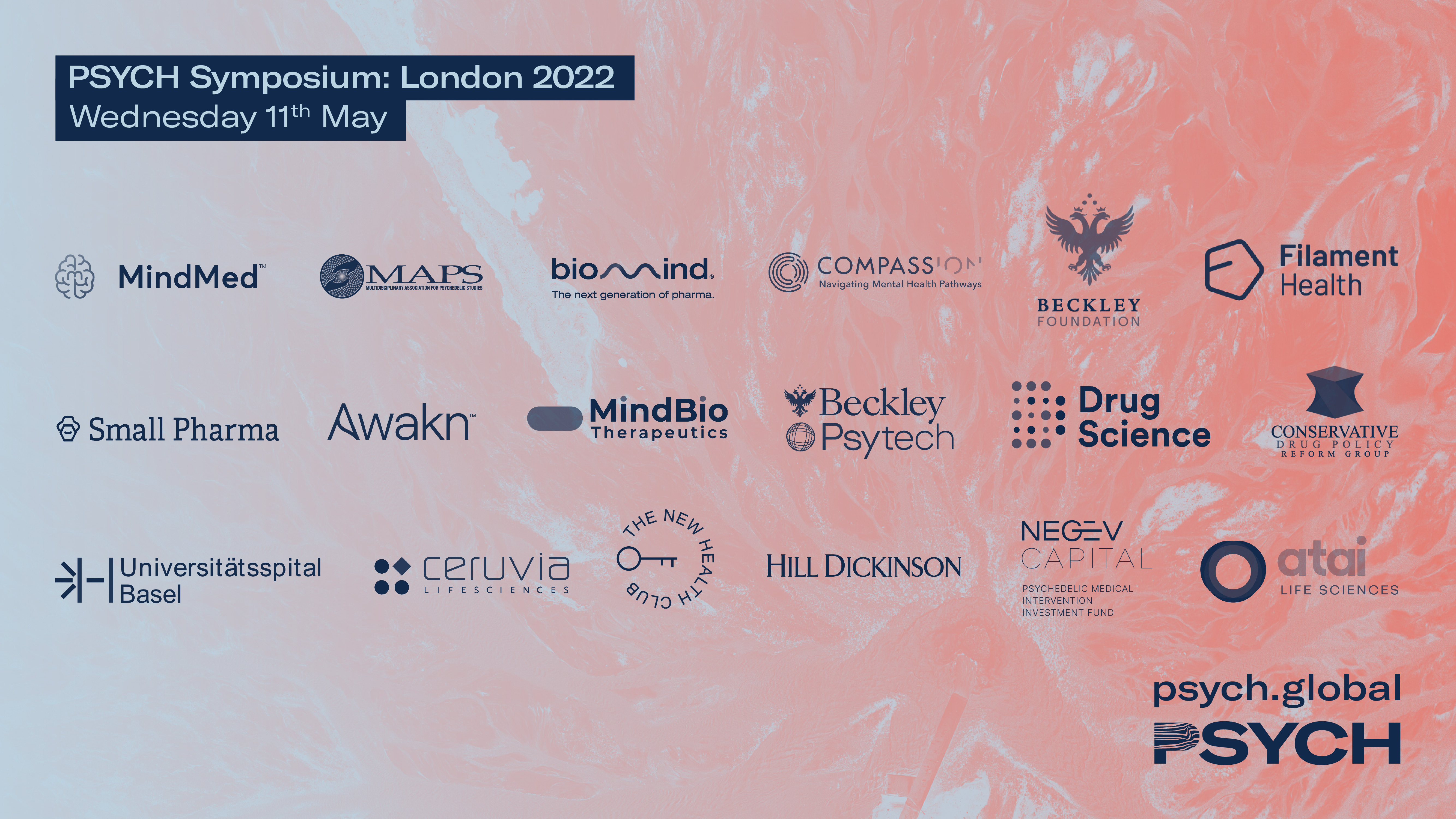
The following article was originally published by Psychedelic Alpha.
As the psychedelic sector continues to mature, stakeholders from an ever-growing number of countries are working to bring the next generation of neuropsychiatric treatments to patients in need. In less than a week, many of these global leaders from industry and academia will arrive in London at the PSYCH Symposium to share, learn, and contribute to the ‘future of psychedelic healthcare.’
Today, the United Kingdom, and Europe more broadly, are home to some of the world’s preeminent psychedelic researchers, institutions, and companies. These leaders have recently led and overseen many of the more notable developments in psychedelia.
Prominent London-based academic institutes such as Imperial College and King’s College London, along with non-profits like the Beckley Foundation based out of the eponymous park in Oxford, have pushed our collective understanding of psychedelic science forward. More recently, European companies like COMPASS Pathways (UK), atai Life Sciences (Germany), GH Research (Ireland), Small Pharma (UK), and Beckley Psytech (UK) have emerged as sector-leading drug developers, working to advance a diverse range of classical and novel psychedelics through the clinical trial process.
Collectively, these researchers and drug developers have bolstered psychedelic research, produced new evidence pointing toward efficacy, and helped bring widespread interest to a growing industry and field.
However, as with many other jurisdictions, the UK hasn’t been the friendliest environment for psychedelic research. But, as the country seeks to find its edge in a post-Brexit world there are signs of an increasingly pragmatic approach to the research of scheduled substances that could represent a more amenable environment for psychedelic research.
This change isn’t happening on autopilot: advocates of psychedelic research continue to call for policy changes that would lead to more amenable regulatory environments for investigators and patients alike.
In late 2021, UK MP Crispin Blunt called on Prime Minister Boris Johnson to consider rescheduling psilocybin. Citing a growing body of evidence, Blunt asserted (including in an Op-Ed with Psychedelic Alpha in June 2021) that these changes would help clear some existing barriers to psychedelic research and overcome what he describes as ‘the worst research blackout in scientific history.’ In response to Blunt’s appeal, PM Boris Johnson stated in the House of Commons that he would:
“Consider the Advisory Council on the Misuse of Drugs’ recent advice on reducing barriers to research with controlled drugs such as the one he describes, and we will be getting back to him as soon as possible.”
While Blunt has not shied away from reiterating the social and human costs of regulatory apathy, little has changed since Johnson committed to a review of psilocybin’s scheduling over six months ago. Despite the political stasis, many researchers and companies have benefited from other recent regulatory changes that were ushered in following the UK’s withdrawal from the European Union.
As alluded to above: in the wake of Brexit the UK government has sought to foster and invigorate research and development efforts in its established biotech industry. To this end, the Medicines and Healthcare Products Regulatory Authority (MHRA) introduced two notable regulatory changes.
The first change came at the outset of 2021 when the MHRA initiated the Innovative Licensing and Access Pathway (ILAP). This new regulatory pathway, dubbed the ‘Innovation Passport’, was established to support ‘innovative approaches to the safe, timely and efficient development of medicines to improve patient access.’
The ILAP provides innovative drug development programs with a range of benefits similar to those afforded under the US FDA’s Fast-Track Designation. To date, the MHRA has awarded nearly 60 Innovation Passports to applicants, of which at least three have been awarded to psychedelic drug developers: Small Pharma’s DMT candidate, Eleusis’ psilocybin candidate, and MAPS’s MDMA-AT for PTSD program.
In addition to its ILAP program, the MHRA also issued new guidance on the use of real-world data (RWD) in clinical studies. The new guidance describes how prospective drug developers can leverage RWD to support future regulatory decisions such as approvals by the MHRA.
Even as the regulatory environment evolves and groundbreaking research advances in the UK, some companies and investigators are opting to relocate abroad in search of more favourable jurisdictions. To ensure that the UK is prepared to develop and deliver future psychedelic therapies, a stronger emphasis should be placed on retaining and fostering domestic talent and innovation.
This includes the broader task of educating key stakeholders about the growing evidence base surrounding psychedelic-assisted therapies. Small Pharma’s Chief Medical & Scientific Officer Carol Routledge told Psychedelic Alpha that “education is vitally important,” explaining that “in many European countries psychedelic-assisted therapy is quite new, so we have to bring the regulators along with us.”
We look forward to engaging with these discussions at the PSYCH Symposium: London 2022 on May 11. As MindMed’s CEO, Robert Barrow, told us – ‘it creates an opportunity for idea-sharing and a cross-pollination of concepts, as no one has a monopoly on the right answer.’ We certainly agree.
The original article can be found here: https://psychedelicalpha.com/news/psychedelic-bulletin-psychedelic-r-compass-study-points-to-psilocybin-for-anorexia
Psychedelic Alpha is an independent newsletter and community that strives to empower individuals and organisations with the knowledge, network and nuance to make an impact within psychedelic medicine.


